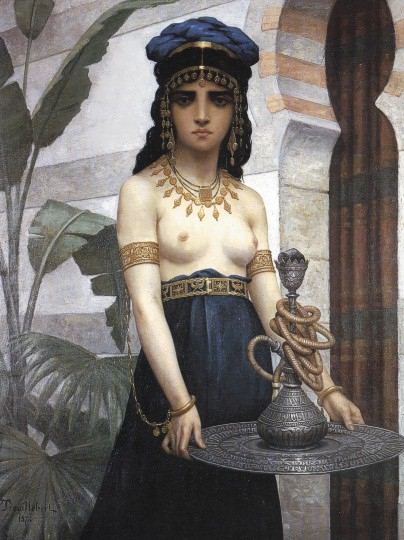|
"I hear from the chain master," said Samos, "that you have learned the tile dance creditably." The tiny cups and glasses shook on the tray. "I am pleased," she said, "if Krobus should think so." The tile dance is commonly performed
on red tiles, usually beneath the slave ring of the master's couch. The
girl performs the dance on her back, her stomach and sides. Usually her
neck is chained to the slave ring. The dance signifies the restlessness,
the misery, of a love-starved slave girl. It is a premise of the dance
that the girl moves and twists, and squirms, in her need, as if she is
completely alone, as if her need is known only to herself; then, supposedly,
the master surprises her, and she attempts to suppress the helplessness
and torment of her needs; then, failing this, surrendering her pride in
its final shred, she writhes openly, piteously, before him, begging him
to deign to touch her.
Needless to say, the entire dance is observed by the master, and this, in fact, of course, is known to both the dancer and her audience, the master. The tile dance, for simple psychological and behavioral reasons, having to do with the submission context and the motions of the body, can piteously arouse even a captured, cold free woman; in the case of a slave, of course, it can make her scream and sob with need. Explorers of Gor, pages 13-14 |

